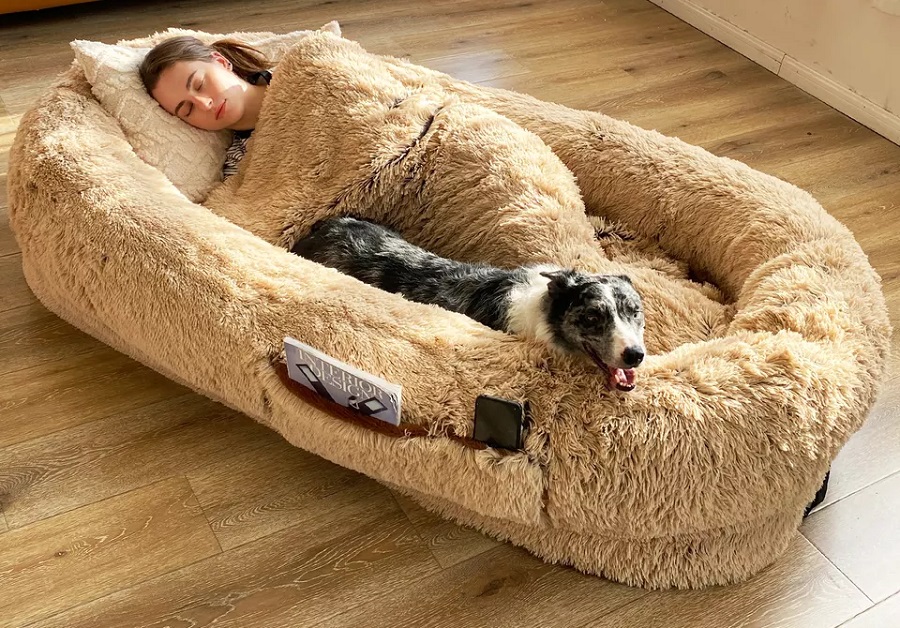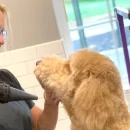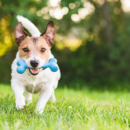If you are a dog lover and planning to bring a puppy home then this article is for you. Before you bring one you should know about the separation anxiety of a dog. To have a good puppy you should check out some online stores near you. You can type “Puppies for sale near me” on Google.
Unhappy dogs can be noisy when you leave. Separation anxiety can be mild or severe. When left alone, a dog may howl, bark, or cry. Your dog's howling may not hurt him or anyone (or anything), but unless you live in a soundproof studio or the country, it can cause problems with your neighbours. It's also an audible signal from your dog to you or anyone nearby that he's unhappy. If your dog isn't well-balanced through training, routine, and exercise, losing his protector can be unbearable. There are many ways to reduce a dog's crying when left alone.
- Establish a routine.
As they adjust to their new home, newly adopted dogs may vocalise when left alone. Changes in your dog's routine, such as your work hours or a new roommate, can cause dog crying. Give your dog one week of the same eating, playing, and exercise schedule to adjust. Weekends included! Even if your schedule varies, try to keep your dog's consistent.
- Exercise daily.
Unused dog energy must be released. Better to run with you and sing while you're gone. Before leaving, walk him. Play or exercise intensely. Launcher fetch toys help your dog get their energy out without much effort. Indoor agility kits work on rainy days. Whatever you do, make sure he's tired enough to sleep while you're gone. Like in humans, exercise releases serotonin in a dog's brain. Exercise releases serotonin into your dog's brain quickly and safely, without drugs. Check out our article on dog exercise for fun ideas (have you tried Doga?) and to stop dog crying.
- Leave the TV or radio on.
General talk radio or news TV works best. Put the volume as loud as home conversations. A sound machine may be a good option if you want something for your dog. This machine has an essential oil diffuser for added relaxation.
- Give him a food puzzle.
Give it to him before you leave so he'll be busy while you're gone. Get the right-sized dog toy. Buy four or more toys and rotate them so one is "new" each day. Our Puzzle Toys Pinterest board has recipes, DIY toy ideas, and more. DIY-averse? These four food-and-chew puzzle toys may work.
- Prepare him for your departure.
To address the dog's crying, "fake" him out the next dozen times you leave. Go to your front door or driveway and return... then wait 5 minutes and return... Leave. He'll think you're returning soon and won't cry. Combine with #6....
- Leave quietly.
NO hugs, kisses, or dramatic farewells when you're about to leave. Don't say "Bye, sweetie!" Okay! Soon, Mommy!" This tells him you're leaving, possibly forever – an hour can feel like forever to a dog.
- Don't fuss when you get home.
When you return, be low-key. Humans struggle here. Ignore attention-seeking (jumping, going crazy) and only reward your dog with calm love and affection 5 minutes after you come home. (You can take them outside if they need to go potty, but do so calmly without fanfare, as if you were home.)
- Boxcar.
See if you can crate train your dog in our article. Take crate training slowly to see how your dog reacts and if it helps or worsens vocalising. Adult dogs can be crate-trained for 4 hours a day. After crate training, gradually increase the time you leave the dog in the crate and the time you're out of the house (by 5 minute increments). You might try an airline kennel, which is darker and more secure than a wire crate, or a darker room. Dogs can pull blankets into their crates and eat them. Use a chew-resistant crate pad.
- Walk/sit/daycare for dogs.
Doggie day care can help dogs who enjoy playing with other dogs get lots of exercise and be happier and less anxious when left alone. Dog walkers or sitters can add enough exercise and attention to your dog's routine to reduce separation anxiety.
- Probiotics
See if your dog could benefit from a probiotic that helps dogs stay calm. Probiotic supplements help dogs maintain positive cardiac activity during stressful events, boosting their mood. Give yourself six weeks to see results.









